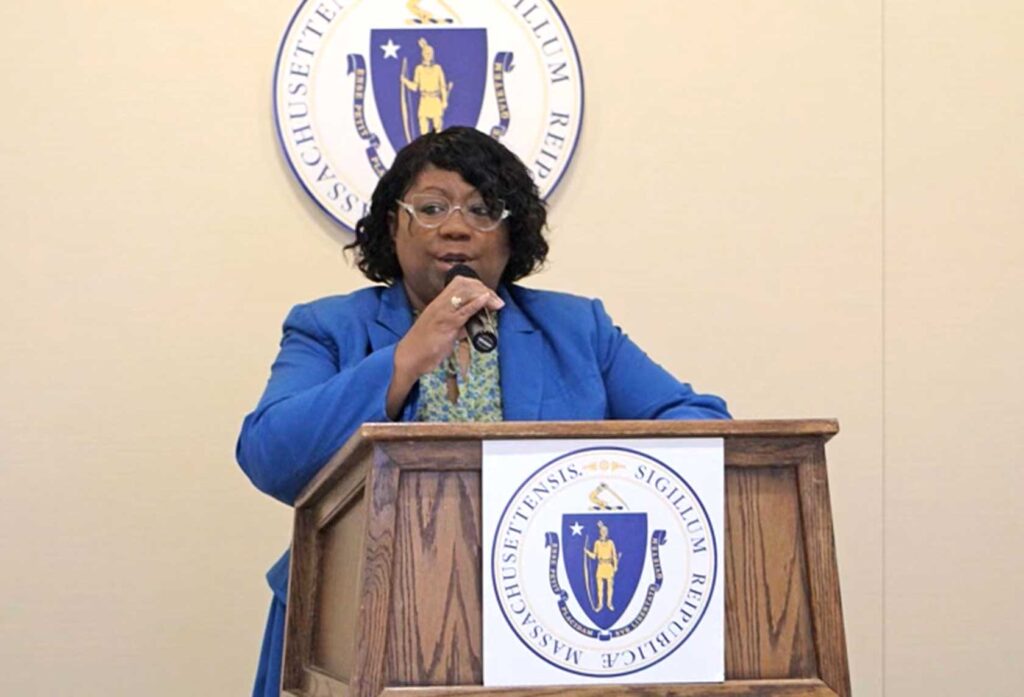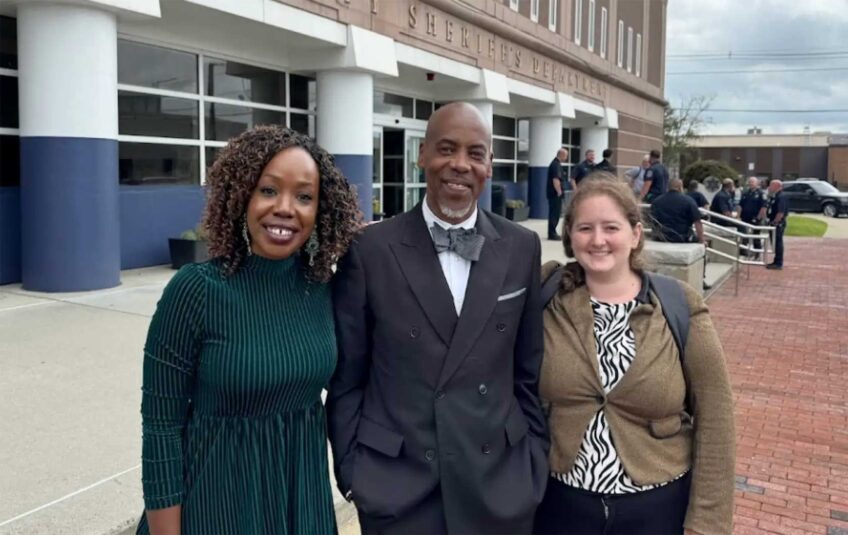In budget bind, Brockton pares schools’ equity, diversity and inclusion office

Since 2021, Brockton’s assistant superintendent of equity, diversity and inclusion, Dr. Renée Heywood, has pursued systemic change with a team of four.
This June, her office will undergo a cost-saving restructuring. In Heywood’s place, a new director and family engagement specialist will carry on. Deputy Superintendent Sharon Wolder estimated two to three teachers — a necessity — can be funded with the cost savings.
Amid a national backlash to the discipline, those in the vanguard of racial justice are entrenched on this axis. District leaders are adamant that Brockton will affirm diverse populations and strive towards equity. But, the founding staff of Brockton’s EDI office had the inherent challenge of confronting the system that hired them. Sometimes, intransigence was insurmountable.
Heywood remains optimistic, insisting ambitious equity goals are achievable. Regardless, she found her cabinet-level position was a “weird space” where three decades of experience and academic credentials didn’t always command respect.
“If a district or its leaders [are] not ready to change, they’re not going to change,” she said, noting that 300 to 400 staff called out sick from her last professional development conference, albeit thousands participated.
Motivated after the murder of George Floyd, Heywood began, she said, “with a certain excitement, only to realize people are kind of stuck.” She hailed former Superintendent Michael Thomas as a “champion of this work” with whom she could “speak very frankly” and said “he was supportive enough to open doors.”
Wolder said “there are individual schools who took full advantage,” while for others, it was seen as an intrusion, and it’s difficult to work when you’re not welcomed. “[Some people] “never open the door to you,” she said.
“People are very territorial,” said Heywood. But, she said, her team was successful “once we got to the schools.” She kept her attention focused on “those who want to run with us,” she said, and was not discouraged by laggards.
Recently, change was harder. “There was just so much going on in the district that I couldn’t get the full attention,” she said. District leadership was in “crisis management” mode.
Interacting with faculty, Heywood found that pride of being “Brockton born, Brockton bred” indicated a nostalgic attitude. But, Brockton’s demographics have changed, and today, 49% of its public school students do not speak English as their first language.
Darnell Thigpen Williams, senior director of professional growth and school culture, described “pockets of success” that stayed compartmentalized. He wanted district leaders to communicate with principals [about] best practices. He, too, is departing.
Williams implemented student equity councils in middle schools and a student ambassador program for high-schoolers. Ambassadors enrolled in a course he taught “to empower the young people with the skills in the language of EDI.”
They published a glossary of terms to establish a common language for talking about EDI. The terminology depicts historical harms, oppression and race relations unequivocally.
School curriculums, Heywood said, have “always been the same: same faces, same story, always told by the same perspective.” One of her areas of focus was diversifying curricular materials, or “decolonizing,” in academic parlance. Heywood and Williams distributed EDI starter kits to elementary and middle schools with books by diverse authors.
Maureen Hickey is a school adjustment counselor at West Middle School. “Shortly before the EDI Office came to Brockton, a few of the staff members of color began to create an affinity group,” she said. Teacher-led support groups met regularly to share experiences and offer guidance.
After the creation of the EDI office, these groups received centralized support from a liaison in each building. “That was the key person to all other staff members of color in that building,” said Hickey.
Wolder said that stipended positions for school liaisons will continue, noting that “that’s where the work actually lives.” Initially, the office was funded by what she called an “instrumental” multi-year grant from the Nellie Mae Education Foundation. That money also launched Brockton’s drone team, secured library resources for the high school and supported its Diversity Education Steering Committee.
Hickey helped create the Student Equity Council at West Middle School and a blueprint for other schools to follow. To elevate equity, West Middle School intentionally recruited students with special needs from a high-needs program, students who have fewer opportunities to participate in school activities.
Hickey complimented the ACT Conference that EDI organized annually on Election Day, a contractual professional development obligation. Its staff-led workshops offered training à la carte. She singled out a mental-health workshop about students’ adverse experiences for informing her disciplinary approach.
But, in her 26 years at the Brockton Public Schools, she’s seen previous attempts to address cultural diversity rebuffed.
“Sadly to say, it has not been widely accepted among [some] staff,” she said. Many seasoned teachers are “set in their ways, and trying to introduce new things to them hasn’t been well received.”
Wolder said the EDI office was “taken aback” by some of the critiques and negative comments after its first ACT conference. For her, she said, that “raised the reality that this is real work” and that connecting with the audience of educators is “really the hard part.”
“There’s always those people who are like, ‘Leave me alone’ or ‘Let me do my job,” she said.
Another area of focus was faculty diversification. They made more progress with principals and paraprofessionals than classroom teachers. EDI sat on hiring committees for administrators, and Heywood said Brockton now has more principals of color than ever.
But, she also spoke of “nepotism” in Brockton, while Williams referenced “cronyism.” EDI’s involvement in hiring decisions often took the form of “calling out people’s biases,” Heywood said.
In 2022, she took on a teacher diversification grant from DESE, but she ultimately “gave it back to HR,” she said, because of challenges recruiting teachers of color. She said she didn’t get responses from people who wanted to take courses toward the Massachusetts Test for Education Licensure.
Heywood said diversification remains a priority. Of Brockton’s approximately 3,500 school district employees, “Eighty-three percent of those who are in the union are white.” About the same percentage of Brockton’s 14,954 students are kids of color. “They don’t match,” she said.
Equity, Wolder said, “should be every educator’s work” and “not laid in the palms of a couple of people” who are expected to make miracles.
Wolder praised the work of the EDI Office. “There are people behind it that matter a lot and did some really cool stuff for Brockton.”
The next person who steps into the role, she said, “needs to honor the work.” Wolder hopes the new hire will be present during the busy start of the school year.
Williams suggested the next head of EDI take time to learn the district culture, beginning with observations and outreach to the bilingual and special education departments.
Through June, Heywood has been focused on a smooth transition for her successor.
“At least I can walk away knowing that I have left a legacy for whoever comes in next,” she said.






